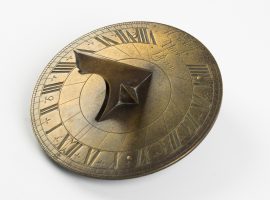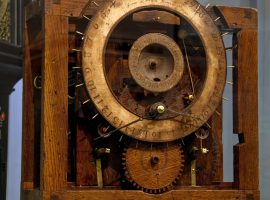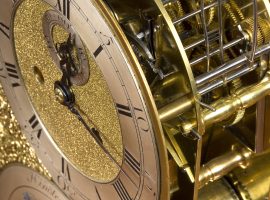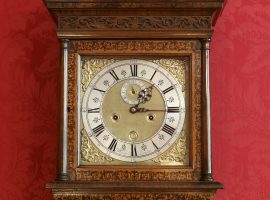Science and Technology
The eighteenth century was a time of expansion in Britain, and the realm of science and technology was no different. Scientific discovery led to technological innovation: from time keeping to medicine; astronomy to communications, Georgian Britain was one of the most exciting periods in our history. Read more about these fascinating scientific and technological advances right here.
Solar time meets clock time
The sundial is perhaps the most ancient form of artificial timepiece. It uses the position of the sun to indicate the time by casting a shadow on a graduated plate.

The Genius of Harrison: precision with a purpose
The problem of determining longitude at sea had exercised the minds of mathematicians, astronomers and natural philosophers for as long as ships had sailed the open oceans.

Harrison’s precision longcase clocks
During the 1720s John Harrison built a number of longcase clocks incorporating numerous improvements which gave them such a high level of accuracy that they have become known as his ‘precision’ clocks.

Hindley: The Pursuit of Precision
Henry Hindley, clockmaker, pioneer and craftsman, possessed an enquiring mind and inventive prowess that led him to break the bounds of conventional clockmaking and enter the arena of scientific and mechanical instrument making.

Hindley: A man ahead of his time
Henry Hindley was one of the greatest of York and Yorkshire clockmakers, and one of the most celebrated inventors and craftsmen of his age.

Enter the pendulum: the birth of the longcase clock
In December 1656 the Dutch scientist and horologist Christiaan Huygens invented a mechanism that would transform the working of the mechanical clock: the pendulum.





